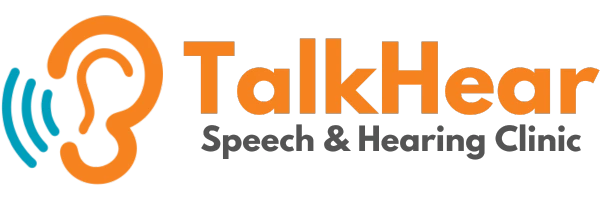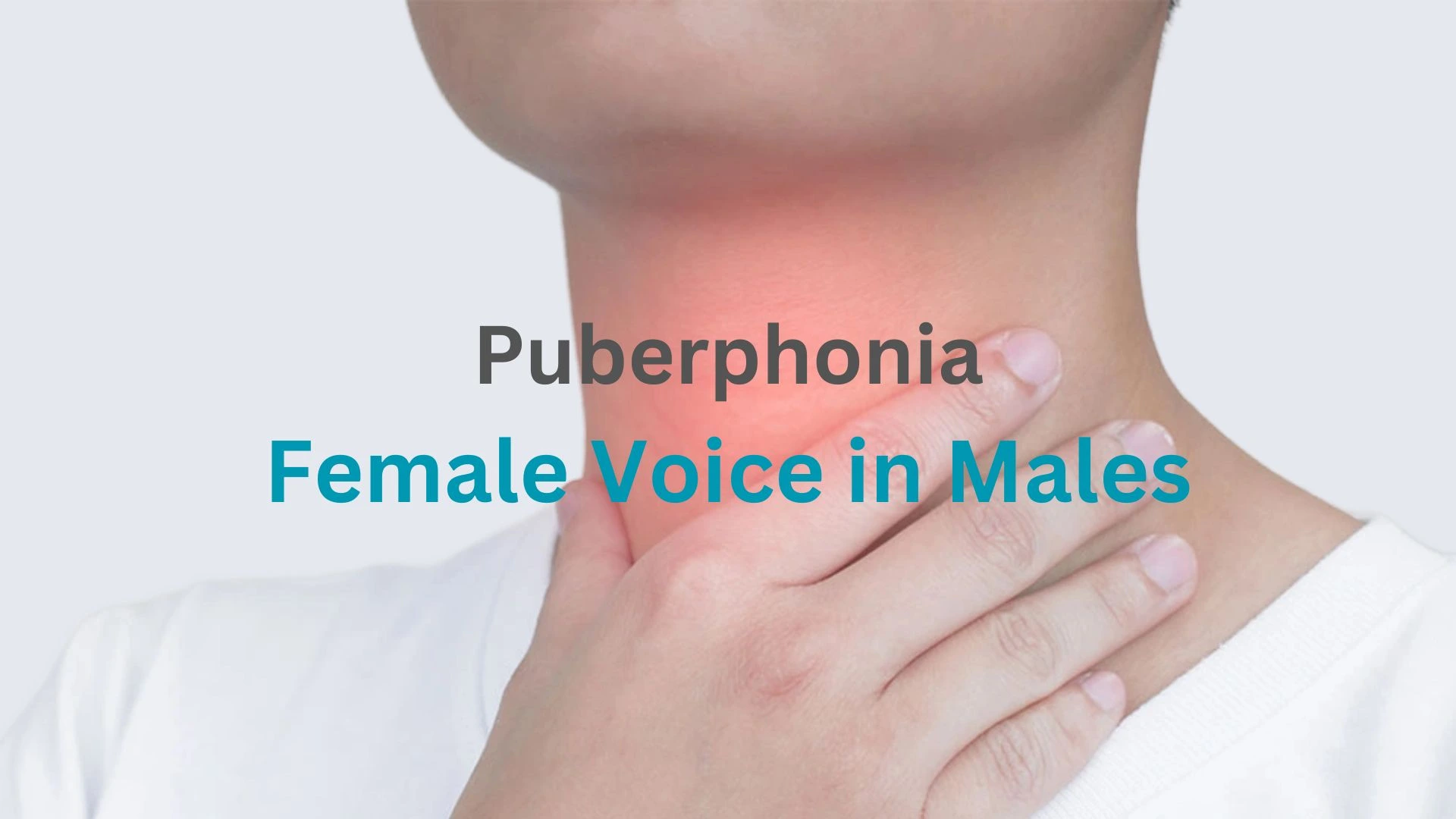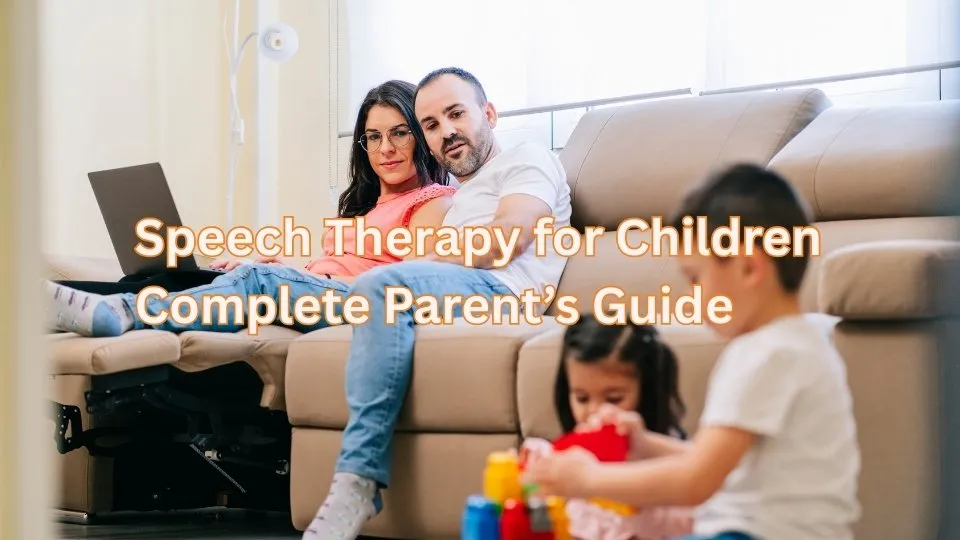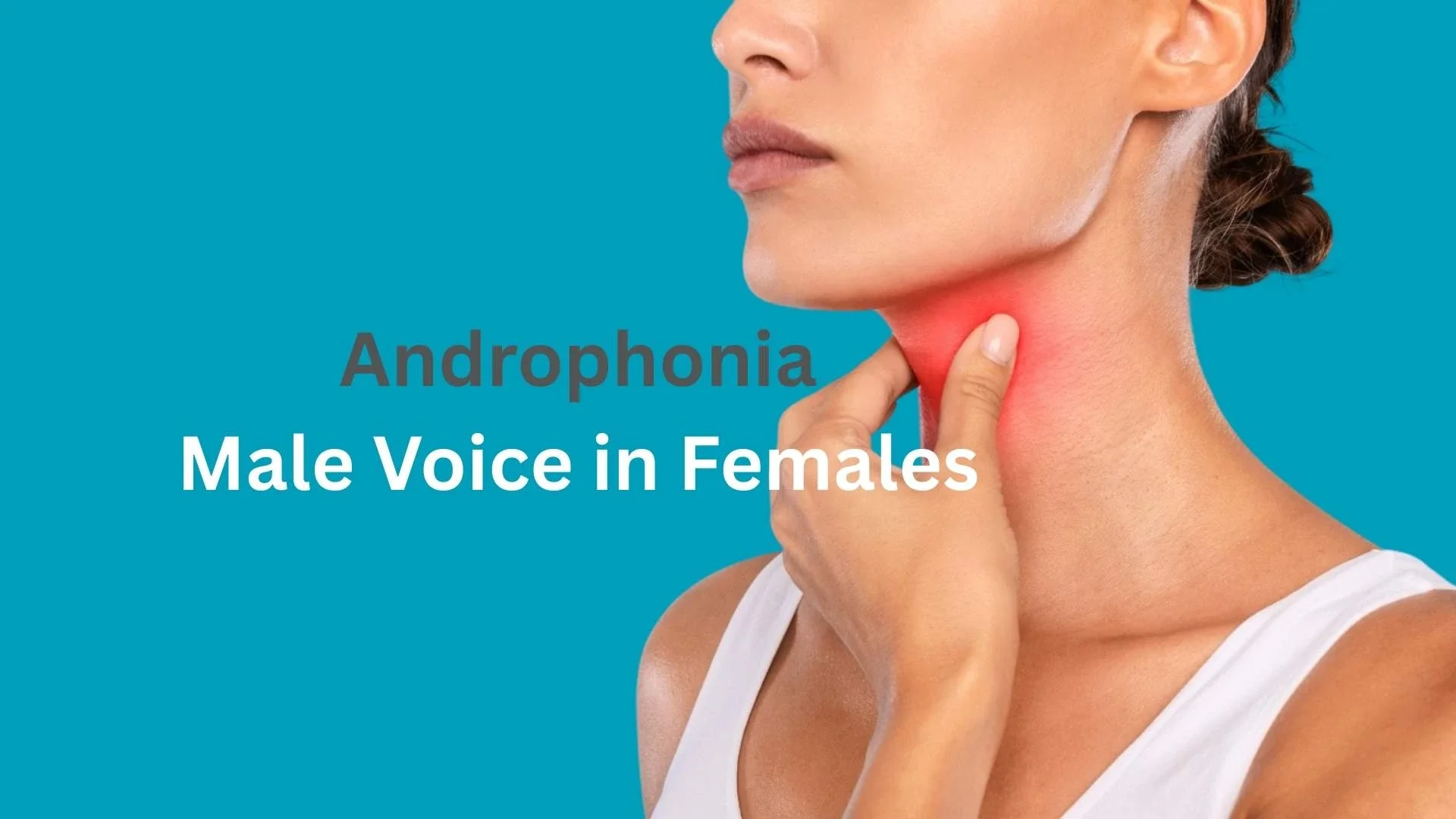Puberphonia-Female Voice in Males
Puberphonia, also known as mutational falsetto or functional falsetto, is a voice disorder characterized by the persistence of a high-pitched or falsetto voice in males after puberty when the voice typically deepens due to the elongation and thickening of the vocal cords. This condition is not related to any anatomical abnormality of the vocal cords but rather arises from a functional issue in the control of the vocal cords and the laryngeal muscles. This condition occurs more frequently in males. In this blog, we will dive into the fascinating world of puberphonia, exploring its causes, effects, and possible solutions.
What is a normal voice change?
When boys grow up and become teenagers, their voices change. This change is called “voice mutation.” During this time, their voices get deeper and sound more like a grown-up’s voice. You might notice their Adam’s apple, which is a part of their throat, becoming more visible. This happens because their vocal cords, which are like strings in their throat, get longer. As a result, their voice goes from sounding higher like a kid’s voice (around 400 Hz) to a deeper, more manly voice (around 100 Hz).
This change happens because of hormones, like testosterone, that increase during this stage of life. These hormones help the vocal cords get longer and thicker, which is why the voice becomes deeper. It’s a natural part of growing up and becoming an adult.
How does puberphonia impact speech and the quality of the voice?
Puberphonia has a notable impact on both speech and the quality of the voice. During puberty, when males typically experience a deepening of their voices due to changes in their vocal cords, individuals with puberphonia do not undergo this natural transition. As a result, the persistence of a higher-pitched or falsetto voice can lead to several consequences:
- Speech Clarity: The higher-pitched voice associated with puberphonia can affect the clarity of speech. The voice might sound less mature and may lack the resonance and depth that is expected in adult males. This can sometimes make it challenging for individuals to convey their thoughts and ideas effectively, as their voice quality might not align with their age or intended message.
- Communication Impact: Communication involves not only the words we say but also the way we say them. A voice that does not match one’s physical appearance can impact the overall impression a person makes during conversations, presentations, or social interactions. It might lead to misunderstandings, as listeners may not associate the voice with the expected speaker.
- Self-Perception and Confidence: Having a voice that doesn’t align with one’s physical attributes can affect self-perception and confidence. Individuals with puberphonia might feel self-conscious or less self-assured about their communication skills. This can potentially lead to social anxiety or reluctance to participate in situations where vocal expression plays a significant role.
- Professional and Social Interactions: In professional settings, a voice that sounds younger or different than expected can impact how one is perceived by colleagues, supervisors, or clients. Similarly, in social circles, it can affect how someone is perceived by peers and potential friends. This incongruence between voice and appearance might hinder effective communication and integration.
- Emotional Well-being: Living with a voice that doesn’t match one’s identity can contribute to emotional stress and discomfort. It might create a sense of disconnect between how one feels inside and how they are perceived externally. This emotional aspect can further exacerbate the challenges associated with puberphonia.
Treatment of Puberphonia:-
Voice Therapy Techniques:
Voice therapy is a primary method for treating puberphonia. Various techniques are used to help individuals lower their voice pitch and achieve a more mature vocal quality. Some common techniques include:
a) Humming with Pitch Glide: This involves humming while gradually moving from a higher note to a lower note on the pitch scale. This helps train the vocal cords to produce lower tones.
b) Glottal Attack on Vowel Sounds: Patients learn to start their voice forcefully while producing vowel sounds. This technique aids in producing a deeper voice.
c) Using Vegetative Sounds: Techniques like coughing or throat clearing are used to initiate voice production. These sounds are easier to produce at a lower pitch.
d) Glottal Fry: Producing the lowest possible pitch (glottal fry) helps in training the vocal cords for deeper resonance.
e) Digital Thyroid Cartilage Manipulation: Patients are taught to gently push on the front of the thyroid cartilage while sustaining a vowel. This manipulation assists in lowering the pitch.
e) Digital Thyroid Cartilage Manipulation:
Another treatment approach involves compressing the thyroid cartilage while asking the patient to speak. This method aims to encourage the use of a lower-pitched voice. Patients are often taught to repeat this procedure at home to help sustain the desired male voice quality.
Surgical Correction (Rare):
In rare cases, surgical correction might be considered. One reported surgical method involves mobilizing the hyoid bone and superior portions of the thyroid cartilage. This is done to reduce the distance between the cricoid and thyroid cartilages, thus achieving a lower pitch. This method requires careful consideration and skilled surgical expertise.
It’s important to note that the effectiveness of these methods can vary based on individual factors and the severity of the condition. Voice therapy, exercises, and potentially surgical intervention are options that can be explored in collaboration with medical professionals, speech therapists, and experts in the field. Patient dedication and follow-up play a crucial role in achieving successful outcomes.
In many conversations about speech issues, individuals often aren’t aware of their voice problem. They might assume it’s not a big deal and that it will improve on its own over time. However, they might hesitate to seek help from a speech therapist.
Just like every part of our body is crucial for a healthy life, our voice matters too. Getting treatment for puberphonia is just as normal as seeking therapy for any other health concern. It’s essential to give proper attention to our voice and overall well-being.
Frequently Asked Questions (FAQs)
What causes puberphonia in males?
Puberphonia is usually functional, meaning there’s no structural damage. Common causes include:
▸Psychological resistance to adulthood
▸Habitual use of a high pitch
▸Emotional or social stress
▸Lack of awareness of voice changes
Is puberphonia a permanent condition?
No, puberphonia is treatable. With appropriate voice therapy by a speech-language pathologist, most individuals recover fully.
Can puberphonia be cured without surgery?
Yes. In most cases, non-surgical voice therapy is effective. Surgery is rarely required and considered only if therapy fails.
At what age is puberphonia usually diagnosed?
Usually diagnosed between the ages of 17 and 25, when a male’s voice hasn’t naturally deepened after puberty.
How long does it take to treat puberphonia?
With consistent therapy, many patients see results in 1 to 4 weeks, depending on severity and motivation.
Is puberphonia linked to hormonal problems?
Usually, no. Most individuals have normal testosterone levels and vocal anatomy. It’s often a behavioral or psychological issue.
Yes. many males with puberphonia report low self-esteem, social anxiety, or mockery, making treatment important for both voice and mental health.




puberohonia treatment
You can call or message us at 9315458024.
Puberphonia can be effectively treated with simple voice therapy.